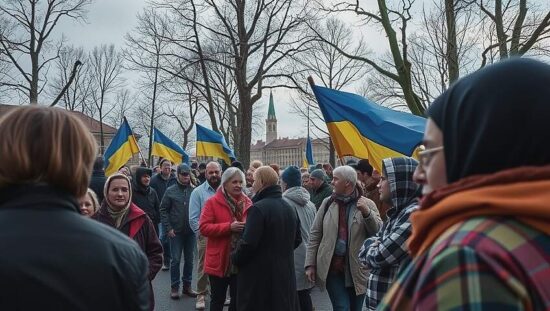Marlene Svazek, representing the FPÖ, has brought attention to the increased arrival of large Roma families from Western Ukraine at the Family Reference Conference. She is calling for an immediate suspension of the Ukraine Displaced Persons Ordinance, citing growing burdens on the social system and municipal infrastructure.
According to Svazek, authorities in Salzburg and other federal states are increasingly registering arrivals of family groups from Transcarpathia, a region in Western Ukraine that has not been directly affected by the war. However, those who have moved in are granted full access to social benefits based on the Displaced Persons Ordinance.
The legal basis for this entitlement is the so-called Ukraine Displaced Persons Ordinance, which grants comprehensive social benefits to all Ukrainian citizens, regardless of their actual region of origin within the country, from the day of their arrival in Austria. This includes social assistance, family allowance, child care allowance and immediate entry into the health insurance system.
Svazek emphasizes that the current version of the ordinance does not differentiate regionally and thus does not correspond to the current security reality. The comprehensive protection status applies to persons who are not from areas directly affected by the war. Therefore, she is calling for the suspension of the ordinance and advocates for the treatment of Ukrainian citizens to be aligned with existing regulations for asylum or protection seekers from other countries, similar to what is already practiced in Norway or Switzerland.
Special attention is being paid to the composition of the groups that have recently increased their arrival in Austria. As explained by the Salzburg Special Envoy for Asylum, Anton Holzer, these often consist of large Roma families who neither speak Ukrainian nor Russian, but possess valid Ukrainian travel documents. While these documents are considered authentic by police checks, the linguistic and cultural distance from other Ukrainian displaced persons raises questions about their actual origin and motivation for leaving.
The issue is not limited to financial concerns. As Svazek highlights, schools are increasingly reaching the limits of their organizational and personnel capacities. The integration effort for school-age children poses significant challenges for municipalities. Many children from Roma families who have recently moved in are not literate, which significantly hampers regular classroom instruction.
As a result, additional pedagogical and social pedagogical resources are needed, such as specially arranged tutoring sessions or the deployment of additional teachers. In several municipalities, special classes are now being formed to meet the specific needs of affected children. The pressure on the education system and the overall social security systems is thus increasingly apparent.
According to estimates by the German Central Council of Sinti and Roma, up to 300,000 Roma live in Ukraine – a significant portion of whom are in regions that have not been directly affected by the war. In other federal states, such as Lower Austria, authorities are also observing a noticeable increase in corresponding applications: there are up to 30 new benefit applications from Roma families alone each week.
In several European countries, the Ukraine Ordinance has already been modified. Hungary and Slovakia now restrict state support to persons who can prove they come from conflict zones. The differentiation is made at the initial registration – a step that eases the system and enables targeted assistance. Norway and Switzerland also handle the situation more restrictively by linking protection entitlements more closely to individual risk situations.
In Austria, however, such differentiation is still lacking. The currently applicable Ukraine Ordinance grants a blanket protection status to all persons with Ukrainian citizenship, regardless of their specific origin within the country. A short-term adaptation is currently difficult due to bureaucratic complexity. Political caution also plays a role: representatives of the Greens emphasize the fundamental promise of protection that Austria has made to all Ukrainians and warn against potentially unfounded sentiments fueled by Russian propaganda.
However, reality increasingly questions this position. Available resources are limited, municipal infrastructure is reaching its limits in many places and the social system is approaching the limits of its long-term sustainability. Without an adjustment to the regulation, Austria risks becoming increasingly attractive to migration-seeking groups, driven not by immediate threats but by the attractiveness of the offered social benefits.





